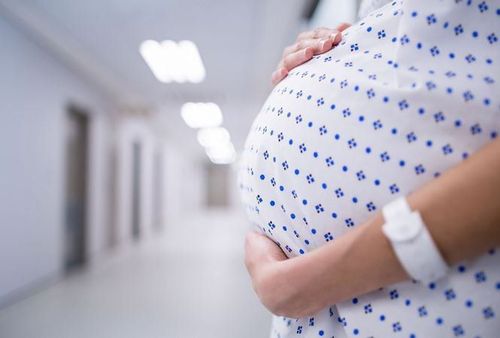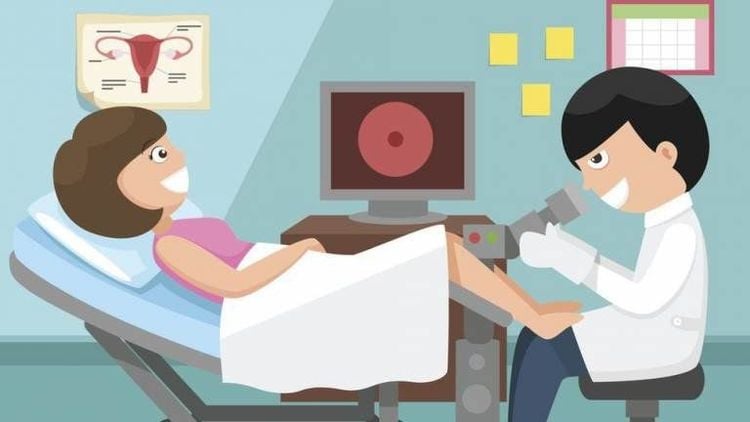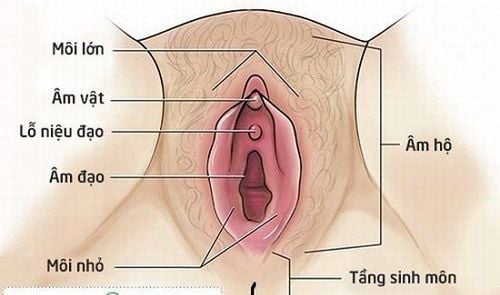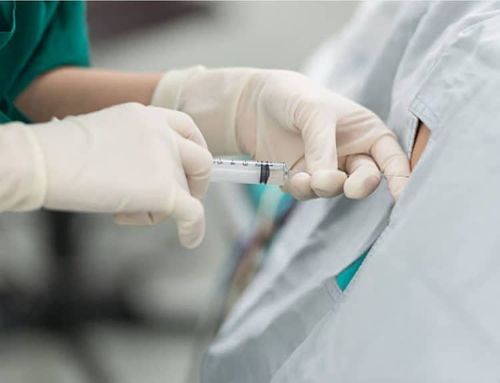This is an automatically translated article.
The article was professionally consulted by Specialist Doctor II Lai Thi Nguyet Hang - Department of Obstetrics and Gynecology - Vinmec Ha Long International Hospital.Postpartum health check-up is a health check-up of a woman about 6 weeks after giving birth to make sure the mother's body recovers well after labor and delivery. Going for a postpartum checkup, even if you feel well, is an important part of your overall pregnancy care.
Postpartum care is important because new mothers are at risk for serious and sometimes life-threatening health complications in the days after giving birth.
1. Why do you need a postpartum checkup?
After giving birth, a woman's body suffers a lot in terms of mental health and physical health. The health of the postpartum woman is greatly weakened, the body's immune system is weakened. The body's hormones also have not slight fluctuations, seriously affecting the physique, the vagina is also greatly damaged.
The doctor or midwife at the medical facility where the baby was born will make an appointment to see you 4 to 6 weeks after you give birth to check on your physical recovery from pregnancy and delivery, see if you are pregnant changes mentally, as well as physically, and may address your future needs. For example: You may still be dealing with some of the aches and pains associated with pregnancy or childbirth, and you may have some questions about how your body has changed. You may also have questions about labor and delivery and about postpartum issues like breastfeeding, birth control, exercise, sex and work, questions about your newborn baby angel. friend. Therefore, go to a medical facility to receive the advice of medical professionals. If you have psychological problems that require immediate professional help, see your doctor or midwife without waiting for an appointment.
The American College of Obstetricians and Gynecologists has recommended that all women visit a health care facility within 3 weeks of giving birth and continue to receive follow-up care as needed necessary, including a comprehensive examination at 12 weeks postpartum.

2. Some health issues the medical facility will discuss
You can raise any questions that are of interest 6 weeks after the birth of your baby. Remember to jot them down or take notes on them on your smartphone, as lack of sleep can take a toll on your memory. In addition to your specific concerns, your doctor or midwife will likely raise other health concerns, such as any complications you may experience during pregnancy and after delivery, when you want to get pregnant in the future and your overall health.
If you still have questions about your emotions or physical condition, now is a good time to ask. Even if your doctor or midwife explains exactly what is happening and why, you may not remember everything that happened to you after the birth. Any physical symptoms you experience, such as you still bleeding, any abdominal discomfort, vaginal or perineal pain, urinary incontinence, or anal or breast pain. If you have a bothersome symptom that your doctor or midwife doesn't mention, ask right away.
Your doctor or midwife will want to know how you are adapting to the demands of motherhood and about any emotional issues you may be having. Do not be shy. It's important to let them know if you're feeling overwhelmed, anxious, or depressed. Alternatively, you can consult with a medical professional about breastfeeding.
Your options for future fertility control and what you need to know about the methods you are considering. If you plan to use any form of postpartum contraception during sex, be sure to let your doctor or midwife know before they examine you so they can advise a number of birth control methods are right for you at that time and whether your body is ready to adopt one of them.
You can consult your doctor about when you can start having sex again. Usually, women won't feel excited for a few months after giving birth, but don't worry if you feel the same way. It's best to wait until your body is ready.
Note: Follow a healthy diet and exercise, including Kegel exercises to help strengthen your pelvic floor muscles.

3. Some problems with physical examination
During the exam the doctor will check a number of your physical problems including the following:
Check your weight and blood pressure Check your abdomen to make sure the skin on your belly is not too tender . Your doctor will examine your incision if you had a cesarean section. Check your breasts to make sure there are no swelling, tenderness or redness, cracked nipples, or unusual discharge. Check your external genitals, including your perineum. If you had an episiotomy to facilitate a vaginal delivery, your doctor will check to see if the incision has healed. Do a speculum exam to look at your vagina and cervix. Your doctor will check for any bruises, scratches, or lacerations. And, if you're going to have a Pap test (Uterine Pap smear) your doctor will do it during the speculum exam. Perform an internal pelvic exam and uterus to see if it has shrunk naturally, check your cervix and ovaries for any problems, and check vaginal muscle tone yours. Your doctor may do a few rectal tests.

4. Some other services provided to you by the medical facility
Before you leave, your doctor will provide information about a number of other services to assist you in your recovery from childbirth, including:
Order lab tests, if needed. For example, if you were anemic or lost a lot of blood at birth, she'll order blood tests to check for anemia. If you have gestational diabetes, you will need a glucose tolerance test. Your doctor will also order vaccinations against diseases, such as tetanus, diphtheria, whooping cough, flu shot, rubella, or chickenpox vaccine. (If you weren't immune to rubella or chickenpox before you became pregnant, you should get the vaccine before you leave the hospital after giving birth. The chickenpox vaccine comes in 2 doses so if you get your first dose soon after you get it. If you are on maternity leave you will need to bring paperwork for your doctor to fill out. Your doctor will let you know. when you should come back for a routine gynecological checkup (including a follow-up for your chosen method of birth control) and give you any necessary information Before you go home, see Take your notes and make sure your doctor has addressed all of your concerns Vinmec International General Hospital with modern facilities, medical equipment and a team of specialists Experts, doctors with many years of experience in medical examination and treatment, patients can rest assured to visit and treat at the Hospital
Specialist Doctor II Lai Thi Nguyet Hang has more than 30 years of experience. experience in the field of obstetrics and gynecology. The doctor used to teach at Hai Phong Medical College, Hai Phong Medical University and worked at Hai Phong Obstetrics and Gynecology Hospital before becoming an Obstetrician and Gynecologist, Vinmec Ha Long International General Hospital.
Please dial HOTLINE for more information or register for an appointment HERE. Download MyVinmec app to make appointments faster and to manage your bookings easily.
Reference source: babycenter.com
SEE MORE
Instructions for taking care of mothers after cesarean section Techniques of neuroanaesthesia with ultrasound in pain management after cesarean section at Vinmec Guidelines for maternal care in the first week after cesarean section














